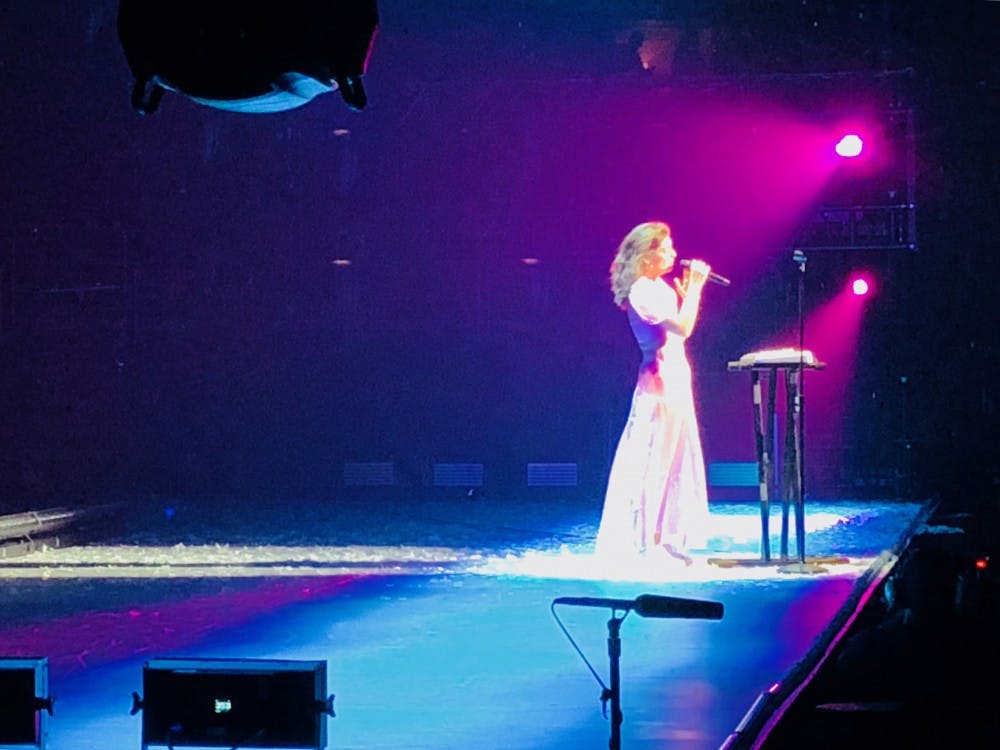Lorde released her sophomore album Melodrama on June 16th, 2017 after a four–year hiatus following her full–length debut, Pure Heroine. In that time, she ended a long–term relationship and wrote a record that captures what it's like to be going through those things while simultaneously growing up and shedding past ideals for reality. It came out a month after my own first long term relationship ended, and it cut through me like a knife. I've only been able to listen to it the whole way through without crying for a few months. It was a visceral catharsis; she was able to put everything I was feeling into words and then some.
I bought my tickets for the show when I was still in the middle of all of this, and my relationship with the album has changed drastically since then. The tears don't come anymore, but the sheer quality of the album never fails to impress me like it did when I first listened to it. If Pure Heroine was high school, then Melodrama was college and realizing that the world is a lot bigger and more complicated than you thought it was.
So, emotional baggage in hand, I took the subway down to the Wells Fargo Center on Monday, April 2, to see Lorde's Philadelphia stop on the Melodrama World Tour. It was my third time attending a concert of hers, after seeing her twice in 2014. Due to a timing mishap, I missed the first two performers, Mitski and Run the Jewels (Ed note: Maybe the most ambitious crossover event in history?), and ran into the stadium as she was performing her opener, "Sober," the second track on Melodrama.

For an arena concert, the production was very minimalistic; the only other people on stage than Lorde were a few dancers, and aside from the bright stage lights, there were no props other than a giant translucent box which floated up and down and tilted from side to side throughout the show. I wasn't expecting an elaborate production—it had surprised me when the tour was announced that the show was in a stadium at all. In fact, my friends and I were redirected to a ticket office inside to get our seats upgraded because the stadium hadn't sold out.
We got to our seats as "Sober" was finishing and "Homemade Dynamite" was starting. And there she was, in pink and puffy sleeves, standing all by herself in the middle of the vast stage. Even from far away, I could tell that she looked different. Her hair was shorter and the last baby fat from her cheeks was gone. But she also possessed an air of confidence and a fluidity of movement, swaying with her dancers and letting herself get lost in the songs in a way that I didn't remember from shows past.
As the show went on, the lights alternated between various shades of blue and red and green, all themes in her writing and the album art. She played almost every song from Melodrama, many from Pure Heroine, and various other songs she collaborated on with other artists or for other projects, such as "Magnets" by her and Disclosure, and "Yellow Flicker Beat" from The Hunger Games soundtrack. She also threw in a Bruce Springsteen cover, but none of us had the heart to tell her he's from New Jersey. I sang and danced the entire time from up in my seat, finally able to hear the songs I'd worn to death through the summer, fall, and winter.
The show felt like it flew by; before I knew it she was closing with "Team," from Pure Heroine. Leaving the stadium and riding SEPTA back to campus felt like a dream state. Surprisingly, I'd only used one of the fresh boxes of Kleenex I'd brought with me, anticipating the waterworks to start like they used to. Instead, I was imbued with a feeling of awe and excitement. It felt like the familiar songs were reborn for me, given fresh breath after what they used to mean for me. I think there's still a small part of me that can't believe it actually happened.







